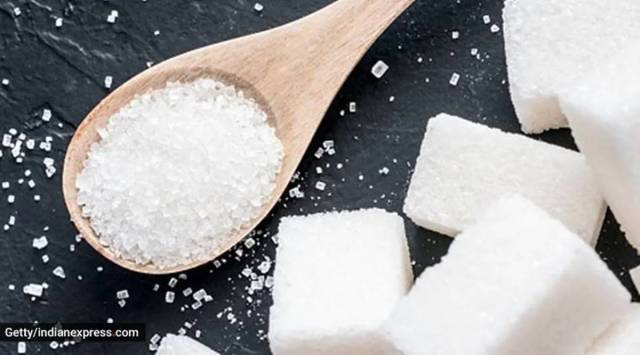Does your artificial sweetener have Erythritol? Study says it raises risk of heart attack and stroke
‘The sweetener called Erythritol activates platelets, the blood cells which cause clots when they clump together. Such clusters block blood flow in different parts of the body. Since its presence or levels are not revealed on packages of processed foods, it is far safer to consume natural foods and avoid using sugar substitutes,’ says cardiologist Dr K Srinath Reddy
 Artificial sweeteners, such as Erythritol, are common replacements for table sugar in low-calorie, low-carbohydrate and “keto” products, the researchers said. (Photo: Getty Images/Thinkstock)
Artificial sweeteners, such as Erythritol, are common replacements for table sugar in low-calorie, low-carbohydrate and “keto” products, the researchers said. (Photo: Getty Images/Thinkstock)Do not reach out for that artificial sweetener with your morning cup of tea or coffee, thinking you are making a healthy choice. You are not. Read the label first. A new research by Cleveland Clinic, published in Nature Medicine, has shown that Erythritol, a popular artificial sweetener, is associated with an increased risk of heart attack and stroke.
WHAT THE RESEARCH SAYS
Researchers studied over 4,000 people in the US and Europe and found that those with higher blood Erythritol levels were at elevated risk of experiencing a major adverse cardiac event such as heart attack, stroke or death. They also examined the effects of adding Erythritol to either whole blood or isolated platelets, which are cell fragments that clump together to stop bleeding and contribute to blood clots. Results revealed that erythritol made platelets easier to get activated and form a clot. Pre-clinical studies confirmed ingestion of erythritol heightened clot formation.
“Sweeteners like erythritol have rapidly increased in popularity in recent years but there needs to be more in-depth research into their long-term effects,” said senior author Stanley Hazen, MD, Ph D, chairman of the Department of Cardiovascular & Metabolic Sciences in Lerner Research Institute and co-section head of Preventive Cardiology at Cleveland Clinic. “Cardiovascular disease builds over time, and heart disease is the leading cause of death globally. We need to make sure the foods we eat aren’t hidden contributors.”
EXPERTS DECODE THE FINDINGS: HOW DO WE READ FOOD LABELS NOW?
Prof K.Srinath Reddy, Distinguished Professor of the Public Health Foundation of India (PHFI), considers the findings significant enough. “This study highlights the dangers of artificial sweeteners in increasing the risk of cardiovascular events by correlating them with metabolic studies of such chemicals in circulating blood. A rise in the risk of incidence of cardiovascular disease-related death, heart attacks or strokes with Erythritol, in stable patients, indicates that consumption of artificial sweeteners carries a major health risk. The mechanism by which the risk is increased has also been elucidated by supplementary studies in healthy volunteers. Erythritol activates platelets, the blood cells which cause clots when they clump together. Such aggregation of platelets blocks blood flow in blood vessels in different parts of the body. When that happens in blood vessels supplying blood to the heart or brain, fatal or non-fatal cardiovascular events occur. Since the presence or levels of such artificial sweeteners are not revealed on packages of processed foods, it is far safer to consume natural foods and also avoid using sugar substitutes,” he says.
Till now, adds Nishith Chandra, Principal Director, Interventional Cardiology, Fortis Escorts Heart Institute, New Delhi, “There was no strong evidence to suggest that erythritol, or other artificial sweeteners, increase the risk of heart attacks or stroke. In fact, some studies have suggested that Erythritol may have beneficial effects on heart health. For example, a study published in the Journal of Nutrition found that consuming erythritol for 14 days improved blood vessel function in healthy adults. Another study published in the International Journal of Dental Hygiene found that Erythritol had a positive effect on markers of inflammation in people with periodontitis, a condition that has been linked to an increased risk of heart disease. However, the recent study conducted by Cleveland Clinic found a strong association between Erythritol consumption and increased heart attack risk. While more research is needed to fully understand the effects of erythritol on heart health, as with any food or supplement, it is important to consume Erythritol in moderation as part of a balanced diet.”
“Erythritol is a type of sugar alcohol that is commonly used as a sugar substitute in foods and beverages. Unlike traditional sugars, it has no calories and does not raise blood sugar levels. It is also believed to have a lower glycemic index than other sweeteners, meaning it may not have as strong an impact on insulin levels,” he explains.
Dr Nityanand Tripathi, Director & HOD, Cardiology & Electrophysiology, Fortis Hospital Shalimar Bagh, says earlier research too had pointed to similar findings. “Artificial sweeteners are synthetic sugar substitutes and those like aspartame lead to increased cardiovascular risk like heart attack, angina, and chest pain. It is a matter of concern because artificial sweeteners are frequently used in many dairy products and chocolates and drinks. Many diabetic patients are also using artificial sweeteners as they do not affect the insulin level or increase sugar. They also do not increase triglycerides (a type of fat found in the body). But a recent study involving almost one lakh patients had conclusively shown that artificial sweeteners increase the cardiovascular risk and also the risk of getting heart attack and CVS by 9 per cent and Aspartame, particularly by 17 per cent. Therefore, it is prudent that one should not consume large amounts of artificial sweeteners.”
HOW ARE ARTIFICIAL SWEETENERS USED?
Artificial sweeteners, such as Erythritol, are common replacements for table sugar in low-calorie, low-carbohydrate and “keto” products, the researchers said. “Sugar-free products containing Erythritol are often recommended for people who have obesity, diabetes or metabolic syndrome and are looking for options to help manage their sugar or calorie intake. People with these conditions also are at higher risk for adverse cardiovascular events like heart attack and stroke. Erythritol is about 70 per cent as sweet as sugar and is produced through fermenting corn. After ingestion, it is poorly metabolised by the body. Instead, it goes into the bloodstream and leaves the body mainly through urine. The human body creates low amounts of Erythritol naturally, so any additional consumption can accumulate,” says the study.
“Our study shows that when participants consumed an artificially sweetened beverage with an amount of Erythritol found in many processed foods, markedly elevated levels in the blood are observed for days – levels well above those observed to enhance clotting risks,” said Dr. Hazen. “It is important that further safety studies are conducted to examine the long-term effects of artificial sweeteners in general, and Erythritol specifically, on risks for heart attack and stroke, particularly in people at higher risk for cardiovascular disease,” he added.
- 01
- 02
- 03
- 04
- 05































